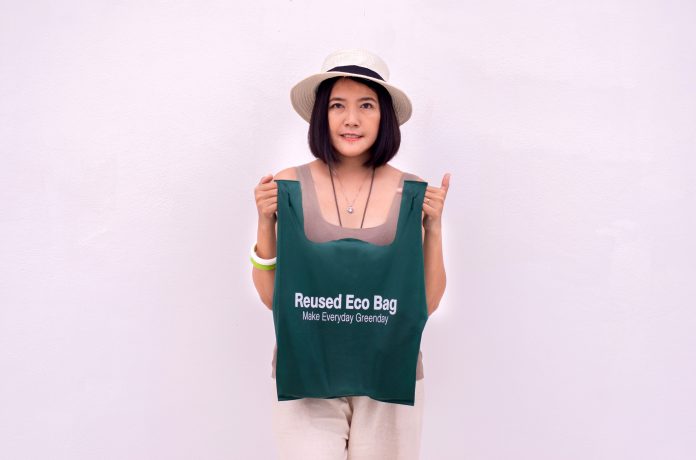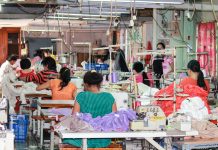Michael Stausholm, founder of Sprout World, discusses what companies and consumers should be doing to contribute to a more responsible and sustainable society
Most of us have now realised that our habit of overconsumption is literally costing the earth. It is harming the planet and creating serious environmental problems for the next generation.
However, the solution isn’t to focus on less consumption, it should be on conscious consumption. Conscious consumption doesn’t mean we have to stop buying and consuming, it’s about consuming and buying more mindfully, being conscious of our choices and choosing to buy from companies who consider the ethical, sustainable and environmental impacts in their manufacturing practices, supply chain and business model.
But how do we go about practising conscious consumption, both for businesses and consumers – after all, it is both of our responsibilities to ensure we emerge from this post-pandemic world in a better place for the planet.
Companies must make convenience a priority for consumers
It might not come as huge surprise but convenience beats sustainability every time. According to research from Getty Images, which surveyed 10,000 people globally, 81% people saw themselves as eco-friendly but only 50% said they only buy products from brands that try to be eco-friendly. The research also found that while 92% of respondents believe the way we treat our planet now will have a large impact on the future, 48% also say that although they know they should care more about the environment through their purchasing habits, convenience takes priority.
This set higher demands for the product development departments in today’s companies. We need to make it easy to be eco-friendly. A good example is the return deposit system implemented in Denmark. Danes pay an additional amount when they buy their Coca-Cola can or plastic bottle and the supermarket returns their money when the empty bottle is returned. If it wasn’t for this economic benefit, how many people would recycle their used bottles? I doubt many would. It IS inconvenient to sort your trash, but motivating people in this way makes it more convenient.
Make sustainable products more affordable for all socio-economic groups
Affordability plays a crucial role in what we consume. As long as it’s cheaper to always buy low quality food, clothes and toys, there will always be business for platforms such as Alibaba and Wish, which are full of products made of cheap plastic at staggeringly low prices, and as a result, produced under terrible work conditions in order to meet those prices. There is a cost to everything after all.
Producing eco-friendly, quality products are usually more costly. In my opinion, we would need to look at reduced VAT or taxes for companies that comply with certain sustainable standards, making sustainability accessible for all income groups.
Companies must practise transparency
Customers are a crucial step in the sustainability chain, as it is consumer choices that are driving companies to be better and smarter at making sure that their supply chains and products are responsible and sustainable. Without demand from consumers, there wouldn’t be an incentive for most corporations to change their ways. But being a consumer and trying to do the right thing can be extremely difficult due to the total lack of transparency exhibited by various industries, brands and products.
For example, how does a customer know what an “organic cotton” t-shirt really means? How is it produced and under what conditions? And can customers safely assume that more expensive t-shirts from premium or luxury brands are actually more eco-friendly and ethically made? The answer is we just don’t know – and this is a major problem.
We need more independent certifications and clarity – not claims from marketing teams. We need substance behind claims, not buzzwords. Companies need to raise the standards at every level of their supply chains and be transparent about this, only then can consumers truly start to buy more consciously.
Companies need to actually walk the sustainability talk
As a company, you only get so far with sustainability messages. You need to walk the talk. This means one-liner claims such as “Our packaging is CO2 neutral” are not good enough. If you sell in Europe, you must be able to document that the material is sourced and produced locally in Europe, and no, producing in China to sell in Europe is far from sustainable. And if you purchase CO2 coupons to offset your China production and transport, this does not make a difference – doing so is just lazy, and an easy way to avoid actually doing something about your CO2 impact on the climate and environment.
However, it’s becoming increasingly common for sustainability matters to come from the top-down i.e. from the C-suite, as opposed to the bottom-up i.e. lonely CSR person, meaning sustainability checks are more likely to be held to account.
Build good habits early on
For so many years, we have equated the amount of new “stuff” and presents with affection and happiness. One of the industries that takes advantage of this is the toy industry – an industry that’s still filled with plastic “Made in China”, use-and-discard products.
From a child’s very first birthday, we show them that lots of presents means lots of love. Kids are drowning in plastic toys that create instant gratification, but they hardly ever play with. We as adults need and have to change this by buying quality instead of quantity. Buying less, but also buying better. It’s like changing a bad habit – it takes time but if we start early, we can change the habits.
An interesting fact is that most people don’t consider luxury goods to be sustainable, however, I personally love Patek Philippe and the slogan they use for their watches “You never actually own a Patek Philippe. You merely look after it for the next generation.” To buy something that will last for generations is in fact very sustainable. It is the opposite of the use and throw-away mentality we still see in many places.
So, think about the long-term value, happiness and meaning of the products you buy before you rush in to buy it, and the world and environment will be better for it.
Editor's Recommended Articles
-
Must Read >> How is fast fashion polluting our water?
-
Must Read >> What’s the fuss about eco-friendly fashion?
-
Must Read >> Impacts of COVID-19 on the fashion industry






























